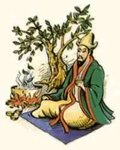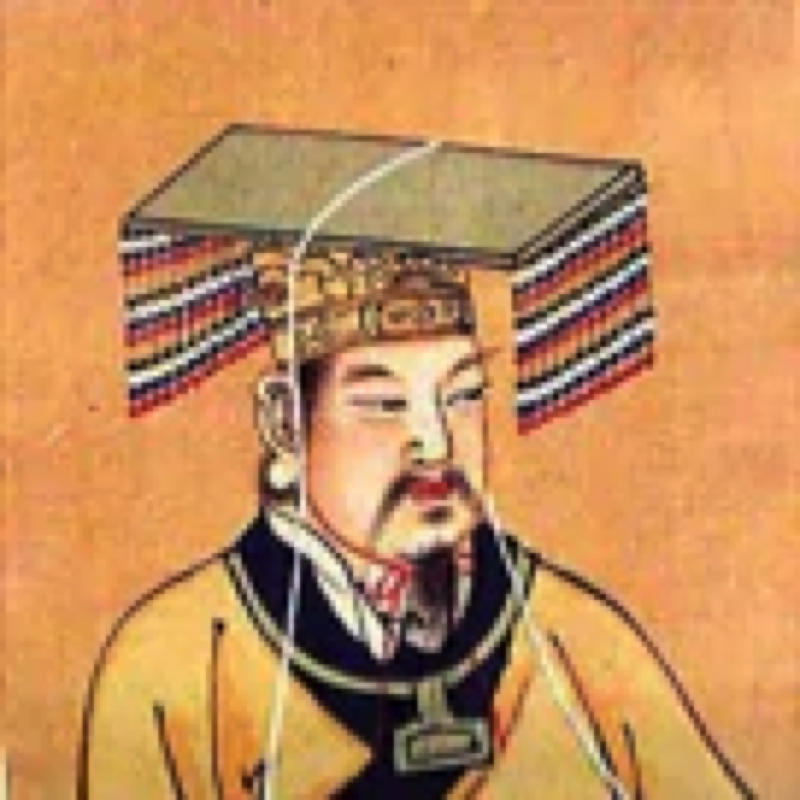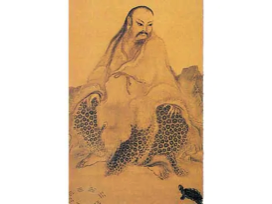Chinese medicine went into decline during the Yuan dynasty (1279-1368). Despite the fact that geographically China reached its greatest expansion, there were serious famines and pestilences, and the population declined from about 100 million (c.1125) to 60 million (c.1290). The Ming dynasty (1368 - 1644) ended the rule of the foreign Mongols and a capital city was built in what is now Beijing.
A spectacular but sadly short lived attempt to revive classical culture followed, however the 432 years of ‘barbarian’ rule had taken its toll and culture went into decline again. Towards the end of the Ming dynasty, Li Shi Chen (1518-1593) wrote the Pen Ts’ao Kang Mu. This work in 52 volumes took 30 years to complete and lists 11,000 prescriptions. An important feature of this work is the classification of herbs by their energetic properties, taste, Yin-Yang character, direction etc. This is considered to be the piece de resistance of the modern age of traditional medicine, and some people consider it to be the only significant text to follow the Mongol age. Along side the Nei Jing, Nan Jing and the Shang Han Lun it is one of the most significant texts in Chinese medicine.
The arrival of the Jesuits in China at the beginning of the 17th century, would have exposed the Chinese to Western ideas and medicine but for the Emperor Kang Hsi who, feeling that the ideas they espoused were too revolutionary, suppressed them, fearing that they might disturb the harmony of Chinese culture. For their part, a comprehensive misunderstanding of the philosophical principles of Chinese medicine by Jesuit translators prevented it from being taken seriously in the West.
Although some historical sources state that it was prevalent during the earlier parts of the Ming dynasty the Chinese consider that it was the Portuguese who first brought syphilis into China.
The Qing dynasty (1644 - 1911) once again brought foreign domination as the Manchu crossed the Great Wall of China and established themselves as the rulers of China.
They were never assimilated by the Chinese people and this, combined with the arrival in force of Western foreign powers bent on ‘trade’ and conquest, saw Chinese medicine go into decline. 1838 marked the inauguration of the Medical Missionary Society in China whose primary purpose was to use Western medicine as a vehicle to propagate Christianity.
Riding on the back of an aggressive political and economic invasion from Europe, modern Western medicine had arrived inauspiciously, in China in the seventeenth century. As the Qing dynasty went into decline during the nineteenth century, Western science and technology became, in the eyes of Chinese intellectuals, (many of whom had been to Europe to study) something considerably superior to the traditional Confucian based culture that had dominated China since the second century BC.
In 1911 the Qing dynasty finally collapsed and the Kuo-Min Tang party established China’s first and only Western style democracy. It became government policy to put traditional ways aside and replace them with Western ideologies. In 1914, Wang Ta-Hsieh, the head of the Ministry of Education of the newly formed Republic of China informed a delegation of practitioners of traditional medicine, "I have decided to abandon Chinese medicine from now on and not to make any use of Chinese pharmacy".
The three mythical emperors credited for the foundation of Chinese Medicine (pictured on the right)




